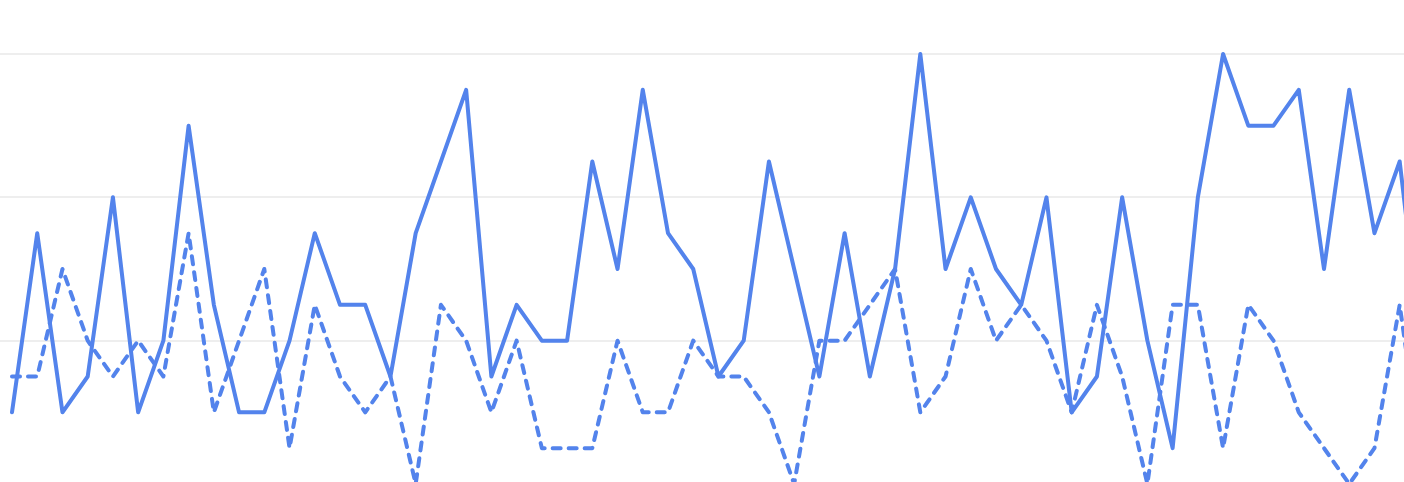SEO Tips for Small Business Series
This is a series of articles aimed to help start-ups and small businesses make cost-efficient choices to get highly ranked on Google and other search engines.
Jump to Related Links to see other links in the series.
The goal of SEO—search engine optimization—is to get your website to the top of Google search results.
Relying only on good content alone won’t get your site to the top of Google Search results because the most important factor for SEO is website authority and website authority is established with backlinks. Posting good content is not enough to achieve website authority.
The big question is, if not via content then how do I improve my Google ranking?
Website Authority is Your Website’s Clout
Website authority is your website’s clout: how reputable your website is in Google’s eyes. Back in the day, the Google PageRank number—a score from 1 to 10—was the leading metric for how Google Search prioritized your website. But in March 2016, Google stopped publishing PageRank data and since then, all anyone can do is make educated guesses.
Even authority checker tools like Semrush, Ahrefs, and Moz make educated guesses, using terms such as Authority Score, Domain Rating, and Domain Authority, respectively.
Good SEO ≠ Good Content
Here is an illustration of how good SEO results and good content are not synonymous.
Example of Unhelpful Content Dominating Google Search Results
This is a Google search for the keywords: how to soothe a sore throat naturally.
At the top of the page is Google’s AI overview that lists a summary of remedies including saltwater gargle.
Comparing the content between the four websites highlighted by Google’s AI for saltwater gargle, you can see they are nearly identical.

I used this example because earlier this year I woke up with a terrible sore throat reminiscent of the time I had strep throat. The earliest availability to see a doctor was weeks away so I was desperate to find a home remedy. But Google’s suggestion was not helpful.
Why? Because I’ve known about gargling with salt water since I was five years old, therefore it was my go-to response at the first hint of a sore throat.
Even less helpful is the next example, also pulled from Google’s AI excerpt:

Google is telling me to rest to soothe my sore throat. Thanks, Captain Obvious.
And finally, underneath the AI-generated content is the top link for the keywords how to soothe a sore throat naturally.

Surprise, surprise, it’s from Healthline, a site that dominates every search result related to health.
I have underlined two unhelpful passages that exist to satisfy a keyword quota.
The article lists “natural remedies” to soothe a sore throat. Specifically, they are:
- Honey
- Saltwater gargle
- Baking soda gargle
- Chamomile tea
- Peppermint
- Fenugreek
- Marshmallow root
- Licorice root
- Slippery elm
- Garlic
- Cayenne pepper or hot sauce
- Broth or soup
- Steam or humidity
- Rest
Not all remedies listed on this site are as unhelpful as Google’s advice to rest. But if you read the content, it is written like a cold and detached listicle. They use terms like anecdotally, which makes the reader doubt its validity.
The search results following Healthline are from the usual players: Medical News Today, Cleveland Clinic, and Mayo Clinic. They are also written in listicle format.
Example of Google Search Results Matching User Intent
Contrast the above results with the results using the search keywords: how to soothe a sore throat naturally reddit.
These are the top five link descriptions:
- Sore throat remedies
- I want all your sore throat remedies
- Sore throat hack?
- SOS I have a sore throat
- What sore throat remedies do you gals use?

This is what the top search result looks like:

To quote the highest-voted comment:
I know of all the honey and tea bs along with gargling saltwater and it has never worked for me so that’s out of the question.
Consider this: If you want to know, how do I soothe my sore throat naturally, which response would you value most?
This response from Healthline:
People report that licorice root helps sore throats, and some studies have found that, out of several herbal infusions, licorice root tea was the most effective at inhibiting the growth of the bacteria that causes strep throat.
Or this top response from Reddit:
It sounds strange, but whenever I have a sore throat I drink warm water with honey and cayenne pepper in it. The honey will coat your throat and the cayenne pepper has analgesic properties. It seems counter-intuitive, but the cayenne actually feels great on a sore throat.
If I had a killer sore throat, I would be reaching for the honey and cayenne pepper after reading this, the solution in the Reddit response that was upvoted 65 times, and not settling in to read the Healthline link to a study titled, Herbal Tea for the Management of Pharyngitis: Inhibition of Streptococcus pyogenes Growth and Biofilm Formation by Herbal Infusions. 🤷🏻♀️
Google Gives Preferential Treatment to Authoritative Websites (Regardless of Content)
Google does not necessarily surface the best content to the top. Instead, Google gives authoritative websites preferential treatment and will do so at the expense of quality.
You can post great articles until your fingers fall off. At the end of the day, if no authoritative websites link back to your website, (i.e. you have no high-quality backlinks) every site with higher authority will continue to outrank you and your content will fail to see the light of day.
There is a shady side to the backlinks business but you don’t have to resort to shady measures to obtain good backlinks.
The fact is, quality backlinks build authority and your website needs authority to rank. The sooner you acknowledge this, the sooner you will realize that content might get you more clicks but overall, you cannot rely solely on good content to get to you to the first page of Google.
Why Bother Writing Good Content?
If good content won’t get you on the first page of Google, what is the point?
In the excitement of making a buck, people forget that the whole point of search engines is to match people’s searches with relevant content.
If your website appears at the top of search results and someone clicks in only to find boring, keyword-stuffed, poorly written content, they will leave.
On the other hand, you may have well-written, original content but no one can find it because your website is buried on page ten of the results.
Good content and high website authority via SEO need to coexist. Think of content and SEO as two sides of the same coin. Together they make a high-quality, search-engine-discoverable website that is informative and helpful to your visitor.
Summary
The most important takeaways are:
- Don’t confuse SEO with content creation. They serve two different goals.
- If your site has low or no authority, no amount of great content will get you to the first page of Google.
- Good content is important for providing value to your customers when they discover your website.
- To build authority and get to page one of Google, you need high-quality backlinks to your website.









